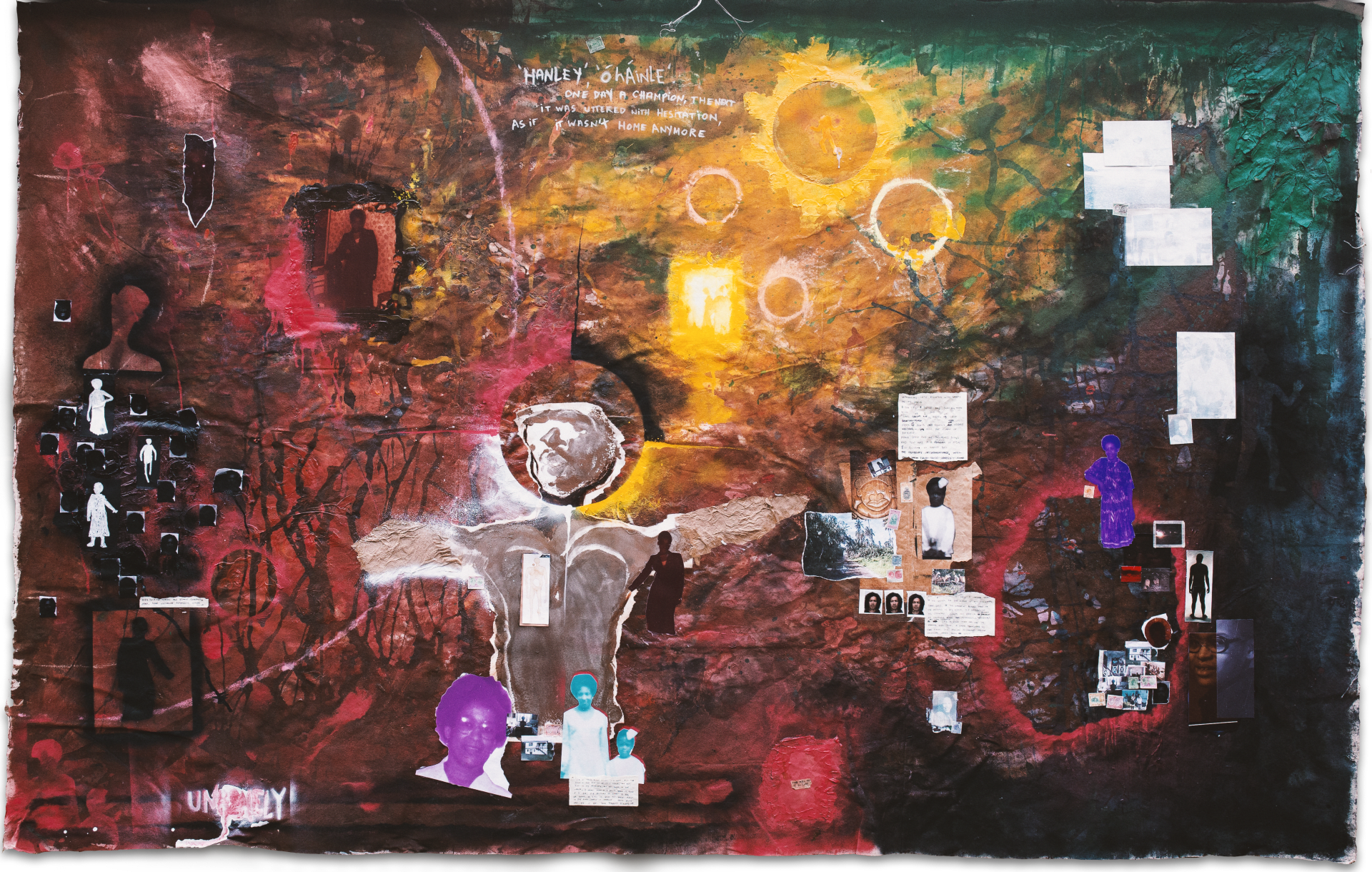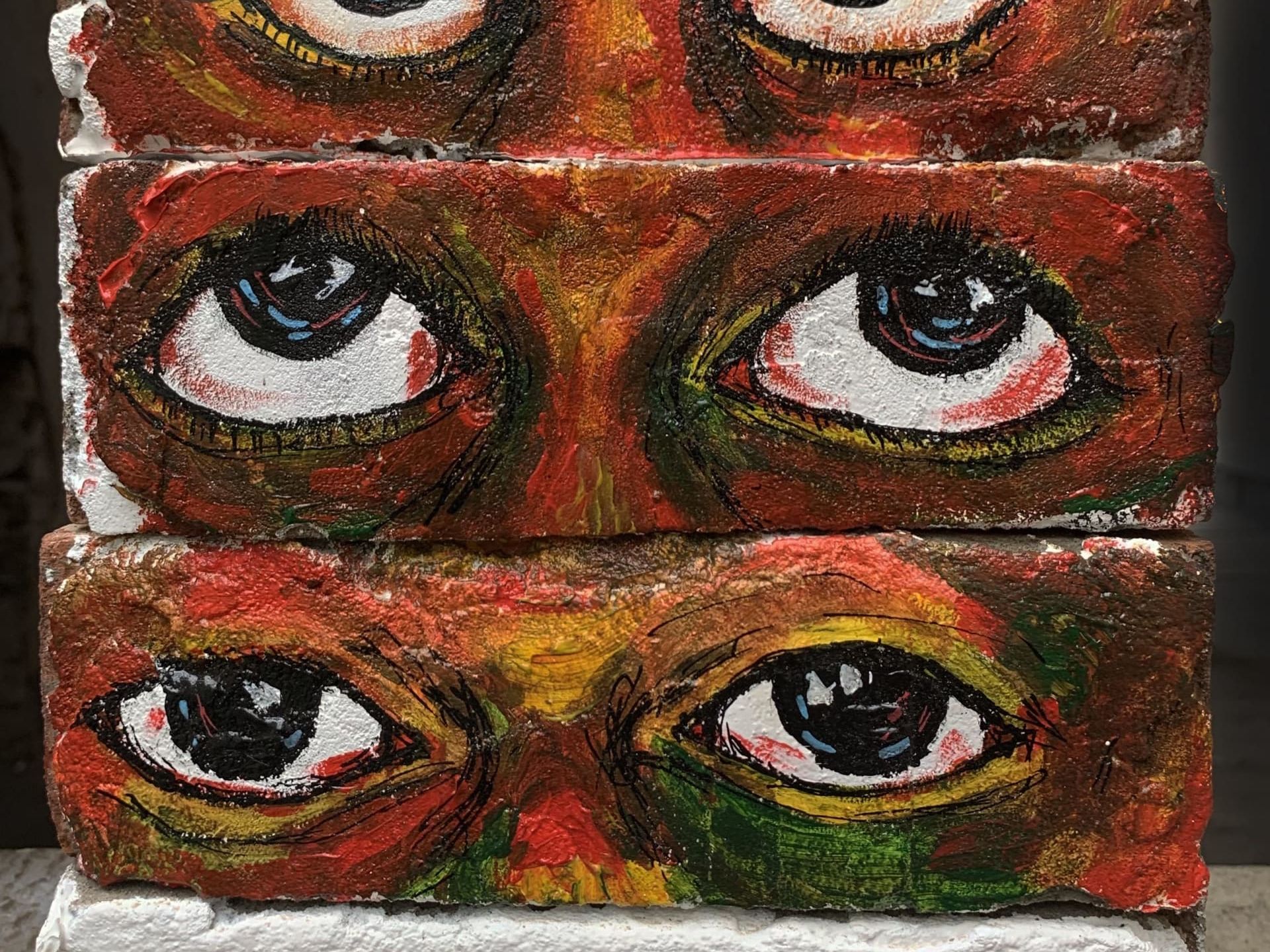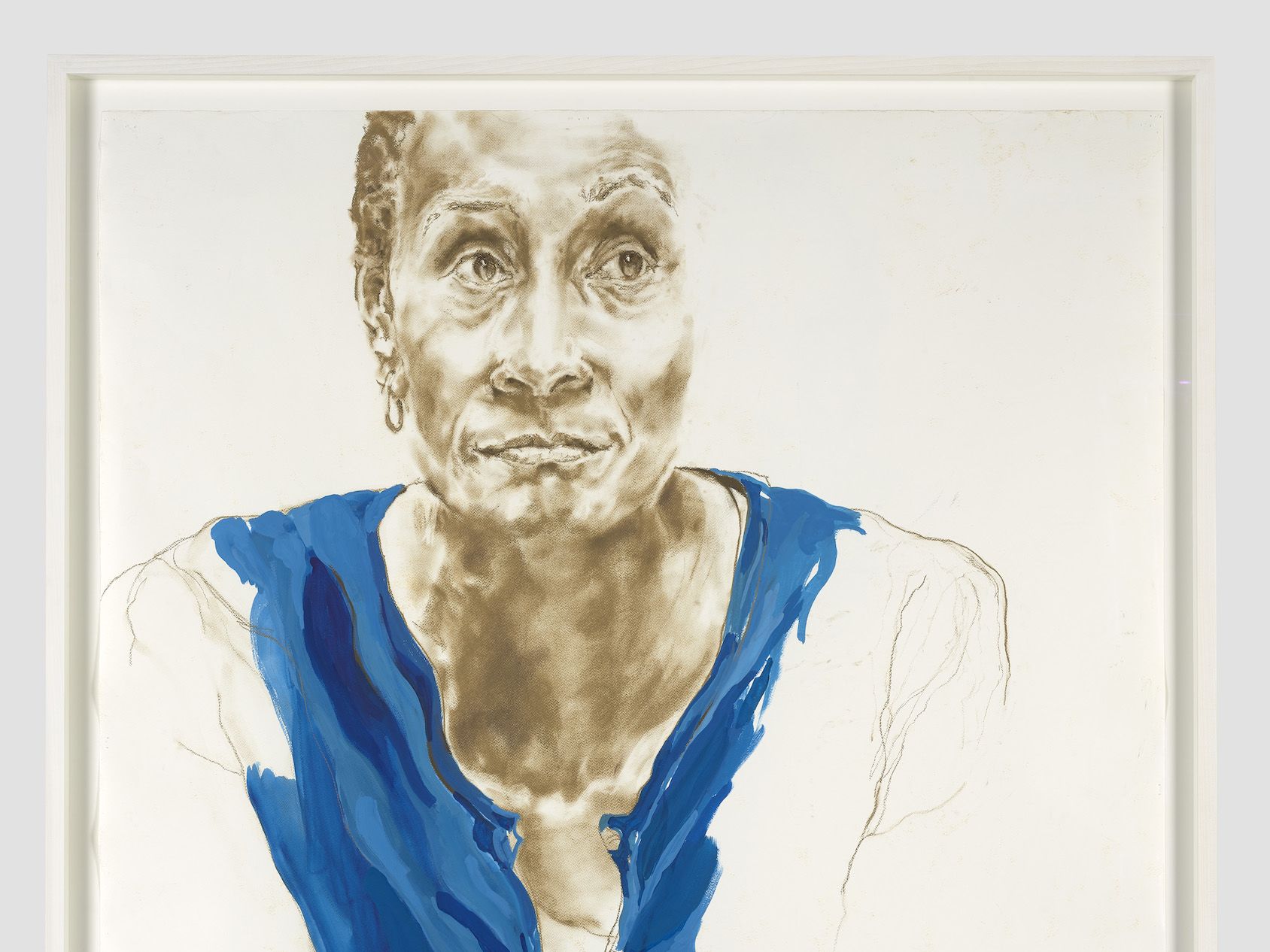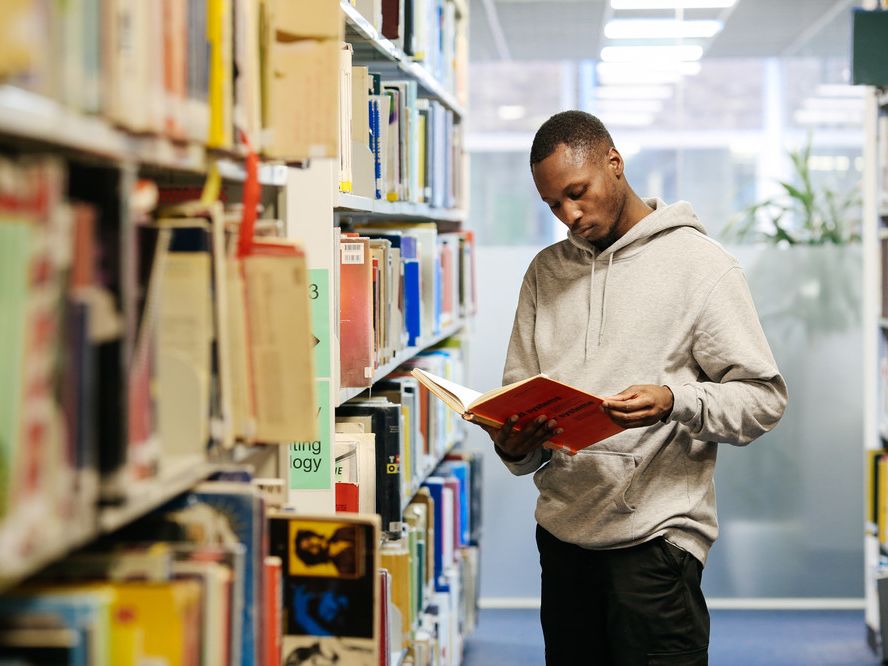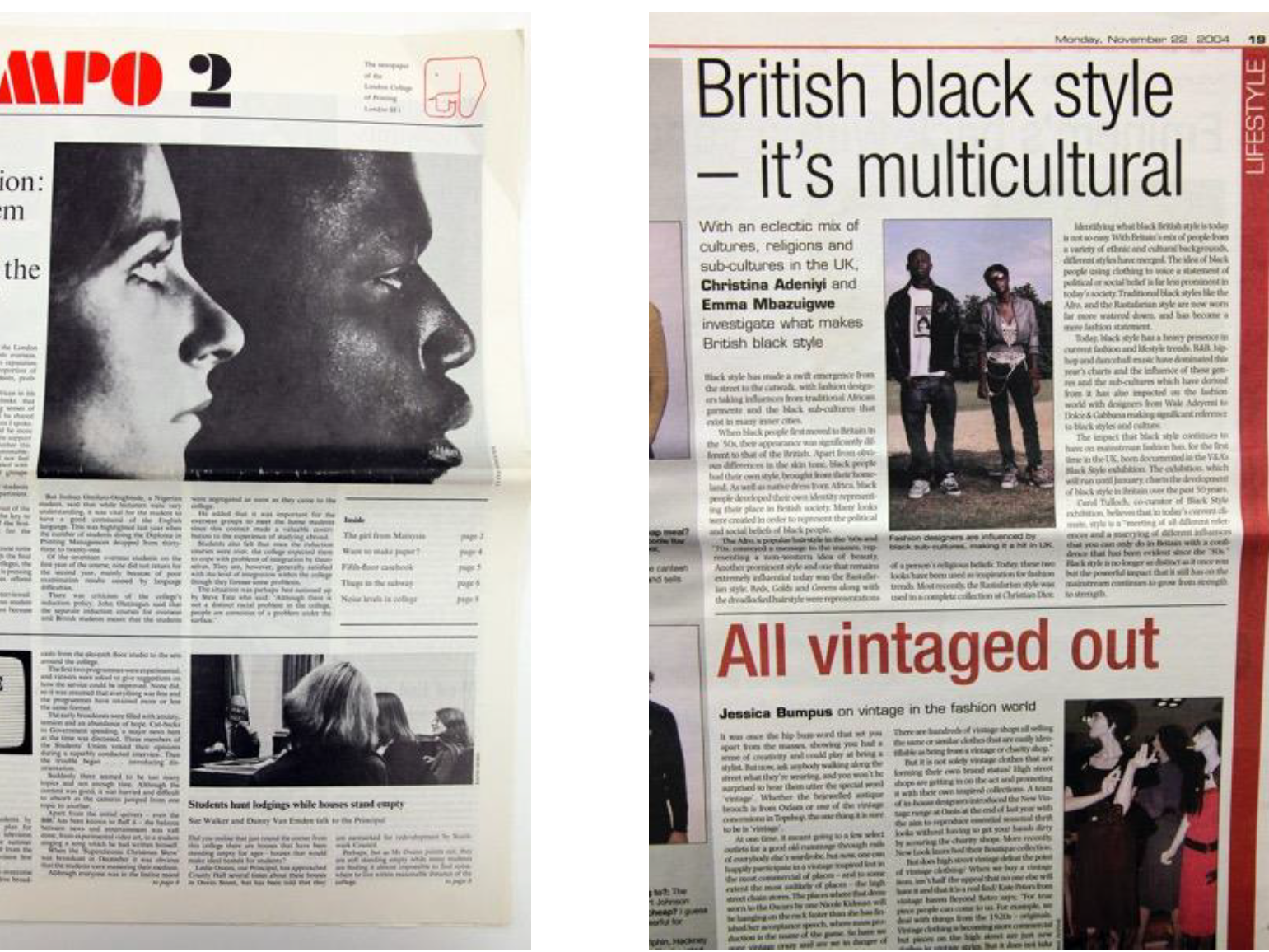The 2021 Decolonising Collections: Curatorial Research Network is in its very first year, led by UAL Decolonising Arts Institute in partnership with Arts Council Collection, British Council Collection and Manchester Art Gallery Collections. Two curatorial researchers in residence Harvey Dimond and Marenka Thompson-Odlum are carrying out original research across aspects of these 3 major collections. Their projects will culminate in late 2021, and they have shared interim reflections based on their investigations so far.

Harvey Dimond: ‘Transatlantic solidarity: class, race and industry in the Manchester Art Gallery collections’
"My research examines histories of Black communities in the North-West of England, with the intention of creating a mapping resource that individuals, collectives, community groups and museums can use. Information on Black histories in the UK is often found in a disparate array of sources, and with this research, I feel that I have only scratched the surface in terms of the breadth of these histories.This resource would by no means be a finite, closed space - I want it to act as a public forum that anybody can contribute to, and it’s important that oral histories can also be recorded too.
The recording of these histories often diminishes the experience of Black people, and often-time they are not recorded by Black people themselves. Take, for example, the ‘race riots’ that occurred in cities across Britain in 1919, which have entered mainstream historical discourse fairly recently. Why are these events referred to as a ‘riot’, when the reality was that this was state and police-sanctioned violence against racialised communities, caused by anti-Black and xenophobic sentiments? Following this period of violence, the British government decided to unlawfully deport many people of colour to the former colonies - there are certainly frightening parallels to the hostile environment policy of the current Conservative government, and the deportation of members of the Windrush generation.
It is vital that the language used to describe these events describes the reality - and that they are not disconnected from the anti-Blackness we experience today."
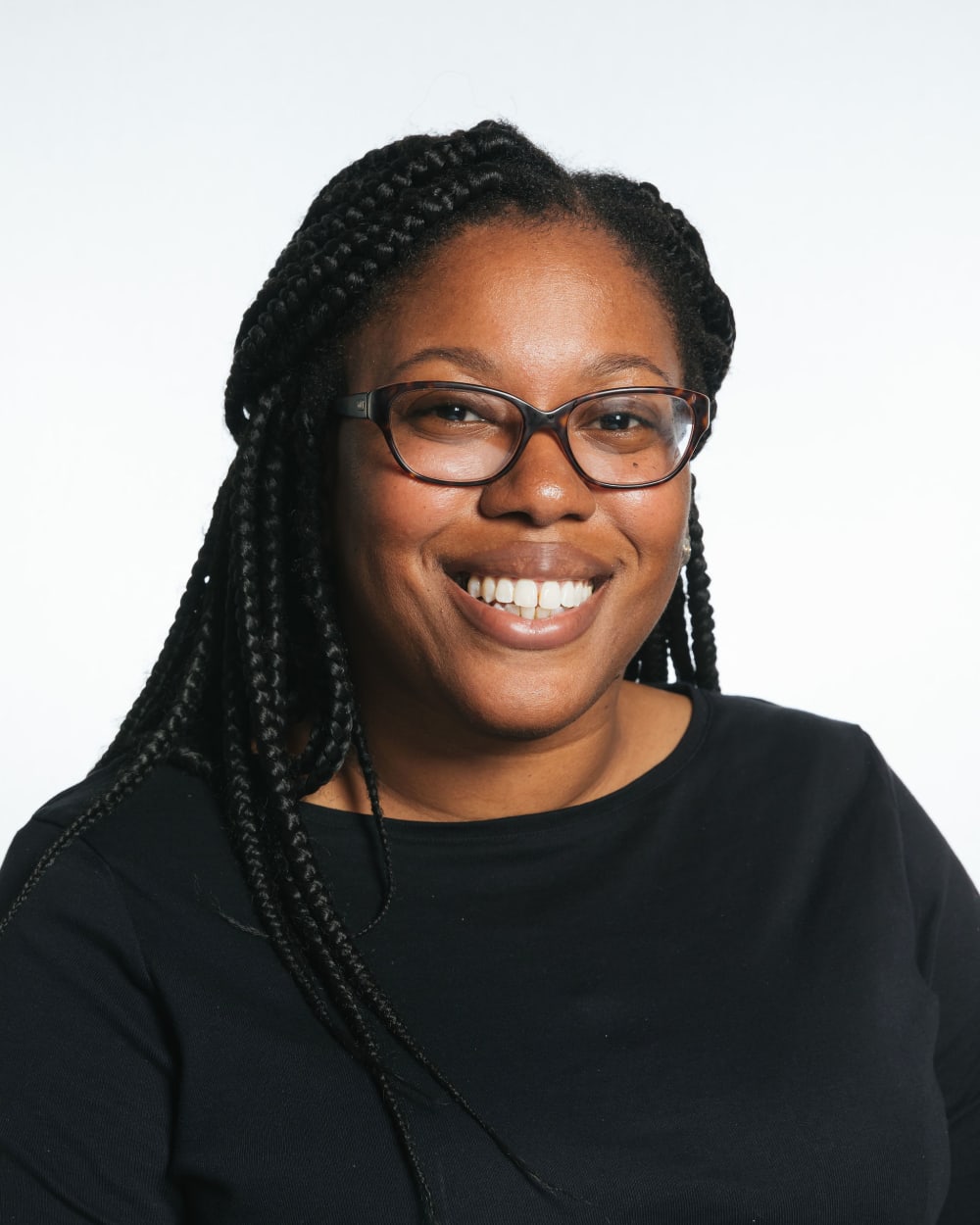
Marenka Thompson-Odlum: 'Coloniality of Museum Language’
"This project will focus on the taxonomy of coloniality within collections language. The goal is, unpicking the ways coloniality is re-iterated in collections rhetoric, identify the stereotypes that perpetuate and use this understanding to rethink how speak about, classify and learn from collections.
The project uses the Collections Development Policies (CDPs) of the Manchester Art Gallery, Arts Council Collection and British Council Collection as a starting point. CDP’s provide insight into the purpose, remit, ideology of the institution (founding and shifting) as well as provide a general overview of the taxonomical frameworks applied to each collection. Each the collections’ CDP revealed a lot about how the collections are similar and differ.
Through the CDPs it is clear that the collections occupy 3 distinct geographical and focal remits: Civic [Manchester Art Gallery], National [Arts Council Collection] and International [British Council Collection]. I propose applying a decolonial framework to each CDP to tease out areas of existing coloniality within each of these specific remits and how each collections’ taxonomies play into reiterating those colonialities and how it affects the 3 remits.
I have the idea of a digital exhibition to present this research, specifically using breakdown illustrations to draw out remits as set by the collections’ CDPs, and how they both play into the coloniality occurring within the collection classification and linguistic choices, as well as limiting their serious attempts at decolonising. These graphics will use specific terms, objects or descriptions to illustrate these various tensions. All this will be done by continuously applying the decoloniality framework that will be available within the exhibition for visitors see and think through."
Biographies
Harvey Dimond is a British-Barbadian writer, artist and researcher based between Glasgow, Scotland and Athens, Greece. They work with queer(ed) histories in the pre and post-colonial Caribbean and Africa. They are interested in the intersections between the climate crisis, anti-Blackness and homophobia/transphobia, and the role the UK has played in both creating and refusing to address these issues.
Marenka Thompson-Odlum is a Research Associate at the Pitt Rivers Museum and a doctoral candidate at the University of Glasgow. Her doctoral research explores Glasgow’s role in the trans-Atlantic slave trade through the material culture housed at Glasgow Museums. At the Pitt Rivers Museum, she is the researcher on the Labelling Matters project, which investigates the problematic use of language within the Pitt Rivers Museum's displays and thinking through ways of decolonisation through re-imagining the definition of a label.
